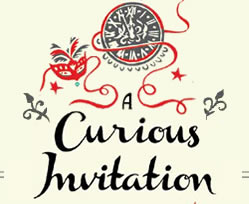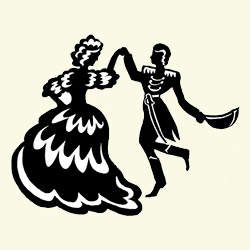 |
The Duchess of Richmond’s ball
From Vanity Fair (1848) by William Makepeace Thackeray
Frequently billed as the most famous ball in history, on the 15th June 1815 the Duchess of Richmond invited officers in Wellington’s army stationed in Brussels to eat, drink and be merry on the eve of battle with Napoleon. Thackeray re-enacts the occasion in Vanity Fair and both of his heroines in this 'novel without a hero' are present at the ball. Amelia sits sulkily in the corner as her dashing husband Captain George Osborne flirts with the comely and manipulative Becky Sharp and finally slips her a nosegay containing a billet-doux. |
 |
The lord mayor's ball
From The Diary of a Nobody (1892) by George and Weedon Grossmith
Aspirational bank clerk and the eponymous nobody Charles Pooter finds his heart beating “like that of a schoolboy” when he receives an invitation from the Lord and Lady Mayoress to the Mansion House to “meet the Representatives of Trades and Commerce”. Embarrassingly for Mr and Mrs Pooter the only person they know at the ball proves to be Mr Farmerson, their local ironmonger: the 'vulgar man who made a bungle out of repairing our scraper.' They dance a waltz, but Mr Pooter's shiny new boots cause the couple to crash to the floor creating an undignified spectacle. |
 |
A little ball at Roxana's House
From Roxana: The Fortunate Mistress (1724) by Daniel Defoe
When Mademoiselle de Beleau, an ostensibly wealthy widow, moves into fashionable Pall Mall apartments in 17th Century London, every beau, fop and hanger-on in the city flocks to her door in search of a lucrative marriage. The glamorous new resident is persuaded to throw a "little ball" for her admirers, at which she appears dressed as a Turkish princess, thus earning herself the nickname Roxana, and attracting the attentions of a well turned out masked guest, who, rumour has it, is none other than King Charles II himself. |
 |
the Paris City Aldermen's Ball
From The Three Musketeers (1844) by Alexandre Dumas (père)
The scheming Cardinal Richelieu has arranged for Louis XIII and his Queen, Anne of Austria, to be guests of honour at a civic ball at which they will dance the Merlaison ballet. The Queen will be required to wear a diamond-studded collar, given to her by the King, for the occasion, but Richelieu knows she has secretly bestowed it as a love token on her foppish English admirer the Duke of Buckingham. The Three Musketeers and d’Artagnan are despatched to England to recover the diamonds. Will they succeed in salvaging her Majesty’s honour before the Royal couple take to the dance floor? |
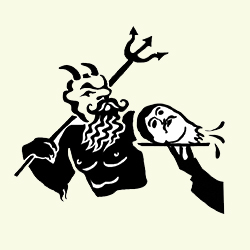 |
Satan's Rout
From The Master and Margarita (1966-67) by Mikhail Bulgakov
The Devil, travelling under his nom de guerre of Professor Woland, comes to 1930s Moscow to throw his annual Springtime Ball of the Full Moon. A local woman who, according to Faustian tradition has to be named Margarita, is recruited as hostess and an elegant apartment on Sadovaya street commandeered to host the festivity. As midnight strikes the dead guests begin to arrive via the chimney and are treated to a variety of Satanic entertainment including fountains of champagne, a symphony orchestra conducted by Johann Strauss and a jazz band of frenetic apes. The unwitting guest of honour is the severed head of Mikhail Berlioz, the recently deceased chairman of the Moscow writers' union.
|
 |
The College Summer Ball
From Lucky Jim (1954) by Kingsley Amis
Gauche bespectacled history lecturer Jim Dixon is stuck in an ambiguous and sexless relationship with his neurotic colleague Margaret Peel. Life at the provincial university where he teaches is made more miserable by his twin nemeses: his supervisor, the feckless Medieval-music-loving Professor Welch, and Welch’s annoying, beret-wearing artist son Bertrand. At the college summer ball Jim resolves to for once to bet on his luck and ask Bertrand’s girlfriend, the fragrant Christine Callaghan, for a dance. |
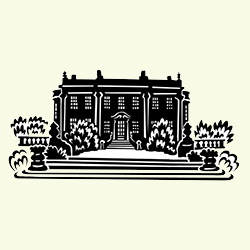 |
the ball at Mansfield Park
From Mansfield Park (1814) by Jane Austen
Fanny Price had been adopted at the age of ten by her uncle Sir Thomas Bertram, MP and plantation owner, to save her from the dreadful fate of being brought up by her natural parents who were “without education, fortune, or connexions.” Eight years on Sir Thomas hosts her coming out ball at his opulent country seat in Northamptonshire. But the timid Fanny is horrified to discover that she has been claimed for the opening dance, not by her beloved cousin and trainee vicar, Edmund, but local cad Henry Crawford, who has inadvertently fallen in love with her. |
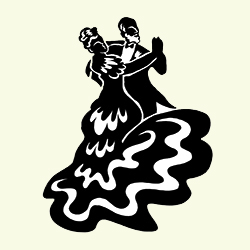 |
the Ponteleone Ball
From The Leopard (1958) by Giuseppe Tomasi de Lampedusa
The aristocratic world of 19th century Sicily has recently been shaken up by the arrival of Garibaldi’s redshirts on their mission to oust the old order and unify Italy. Ageing patriarch and amateur astronomer Don Fabrizio Corbera, the eponymous Leopard, finds himself attending a glamorous society ball as the Palermo beau monde decides it’s time to stage a fightback. Here he dances with the beautiful Angelica, daughter of arriviste mayor Don Calogero Sedàra, and contemplates the death of his social class and his own mortality. |



